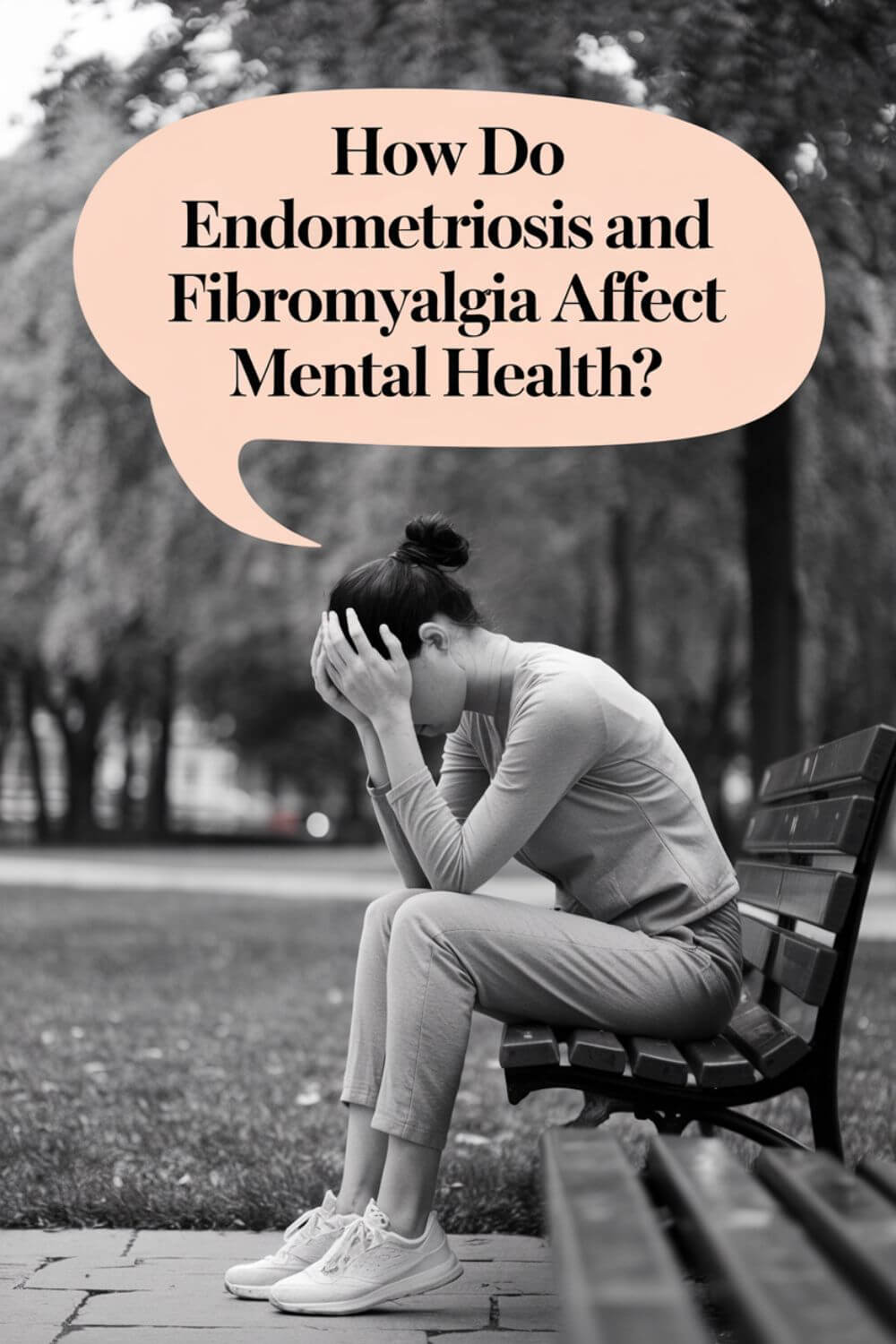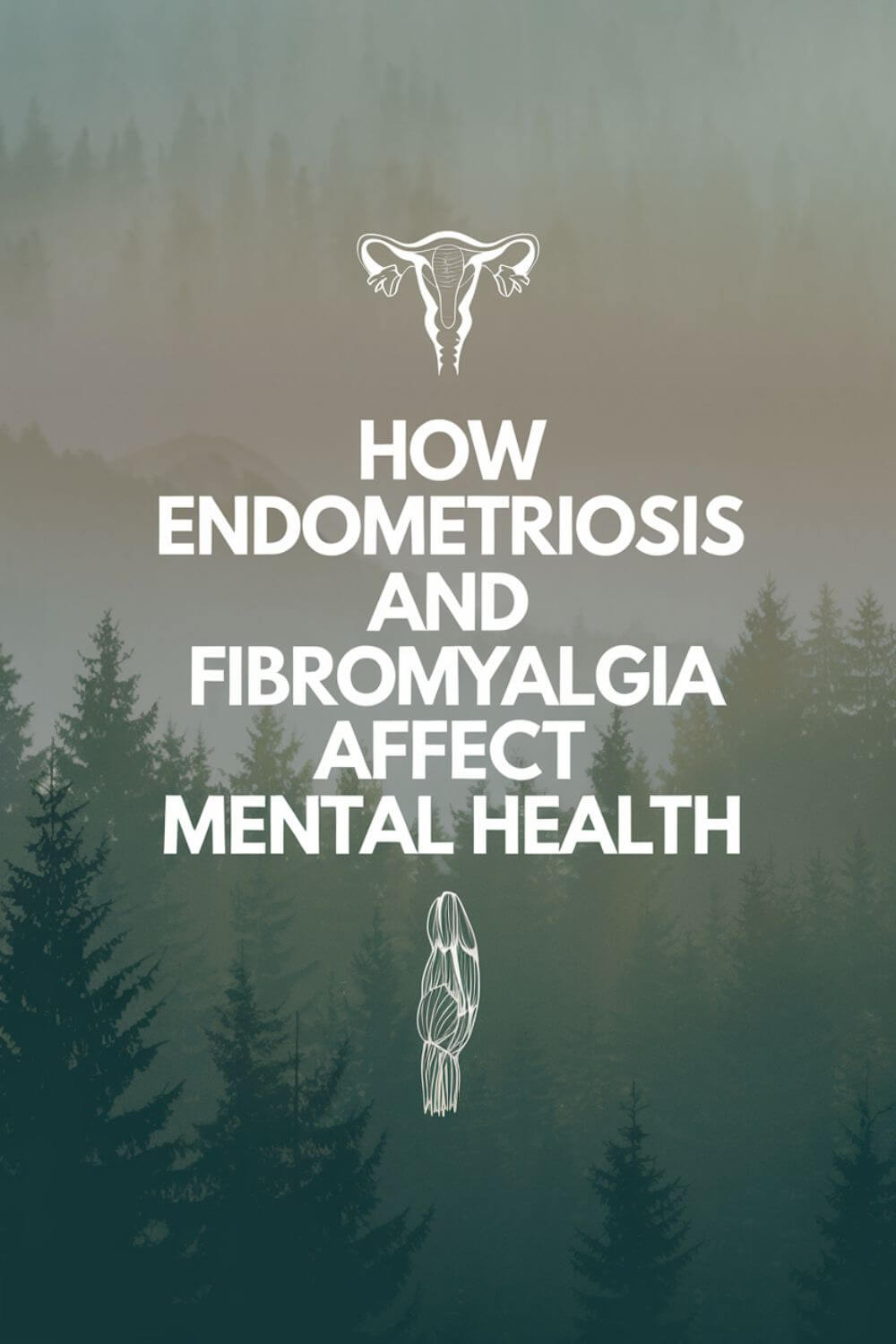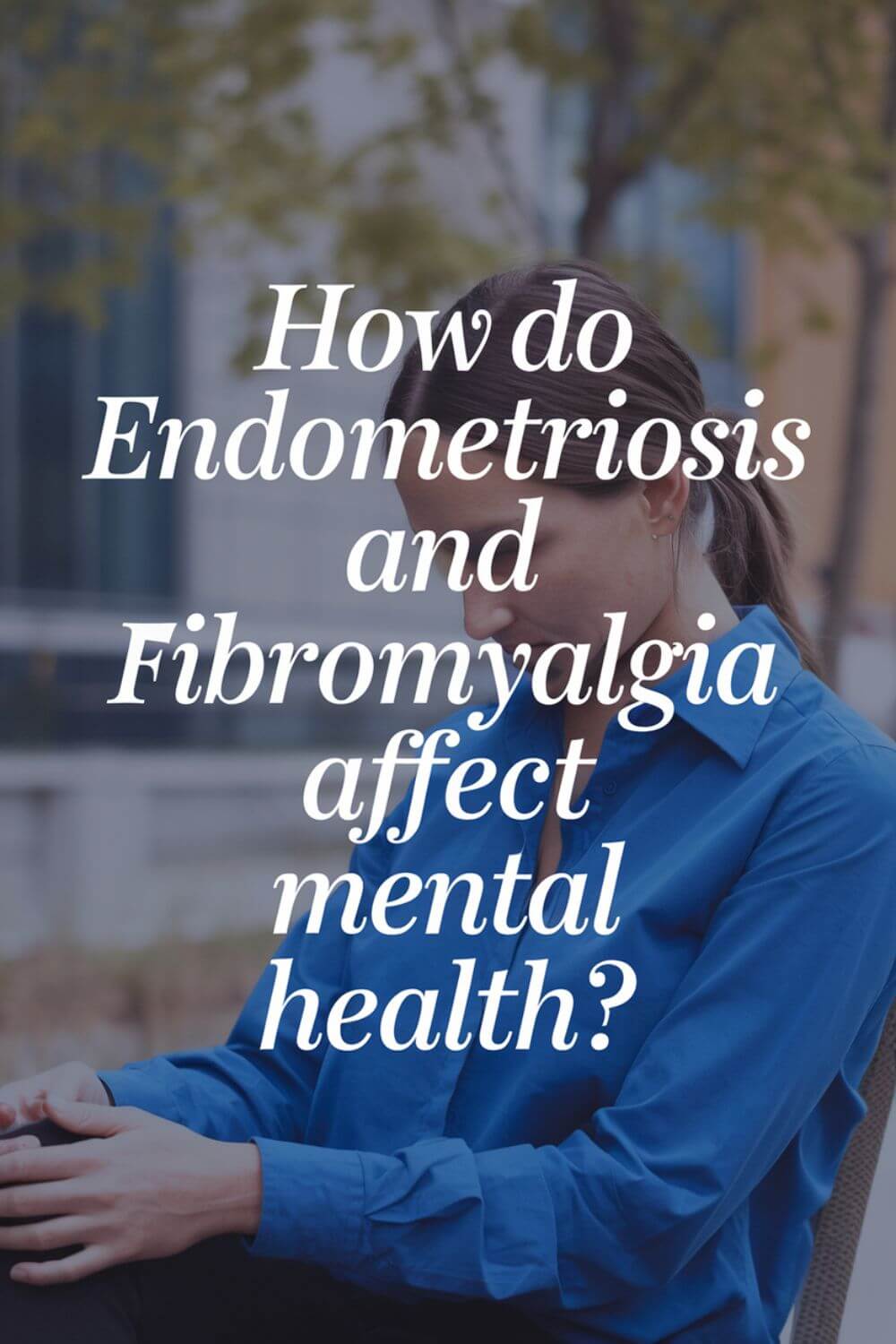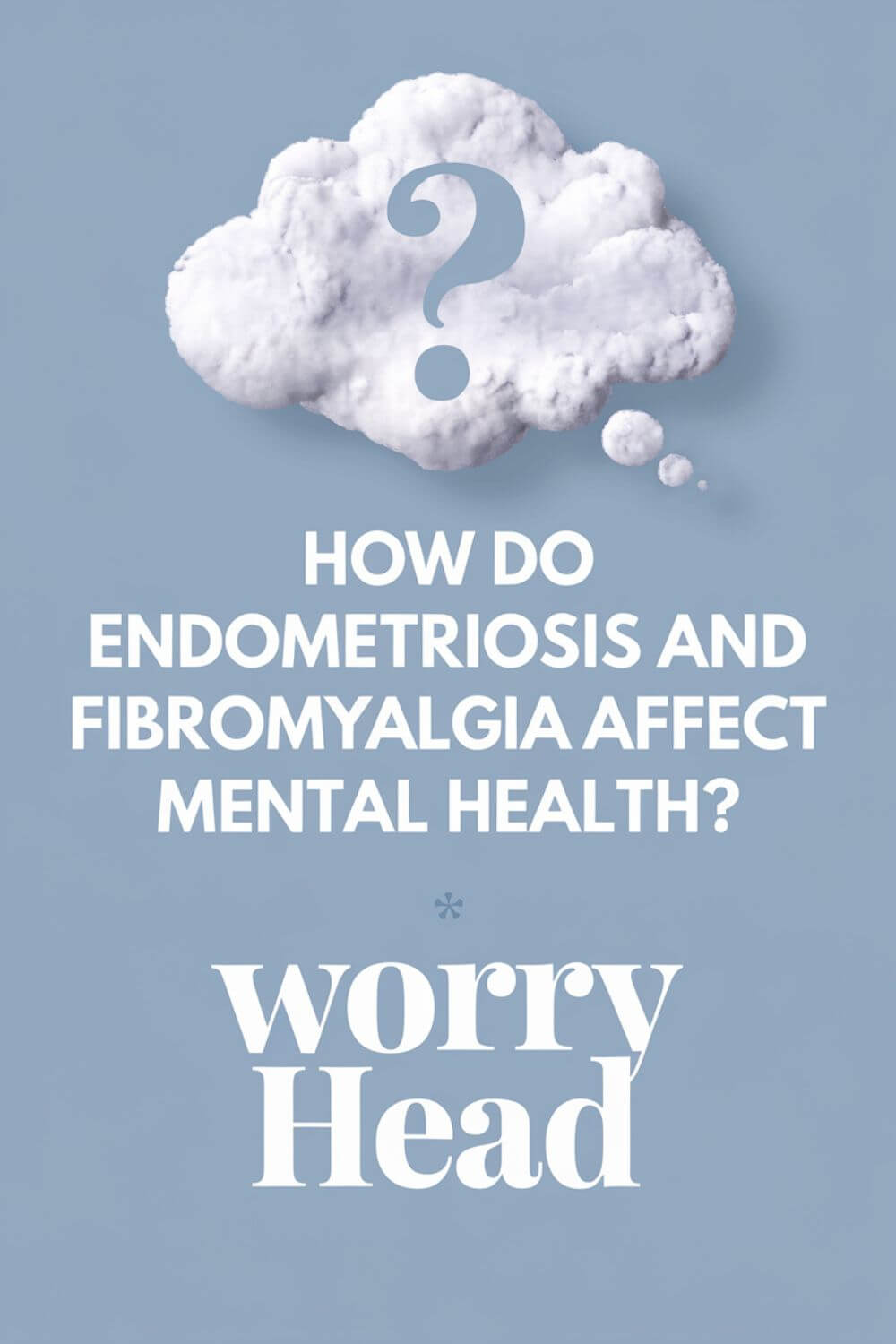How do Endometriosis and Fibromyalgia Affect Mental Health?
Endometriosis and fibromyalgia are chronic pain conditions that can significantly affect a person’s mental health. Living with the constant pain and discomfort associated with these conditions can take a toll on one’s emotional well-being. The impact of endometriosis and fibromyalgia goes beyond physical symptoms, extending into the realm of mental health.
Since my wife suffers from endo and fibro, here are my key points:
- Chronic pain conditions like endometriosis and fibromyalgia can lead to mental health disorders such as anxiety and depression.
- Individuals with chronic pain are four times more likely to have depression or anxiety as compared to those without pain.
- Conditions like arthritis, fibromyalgia, multiple sclerosis, and chronic migraines are commonly associated with mental health disorders.
- The frustration and limitations caused by chronic pain can have a negative impact on overall well-being, affecting mood, participation in social activities, and daily functioning.
- Addressing the mental health needs of individuals with chronic pain is essential to improve their quality of life and overall well-being.
- The Link Between Chronic Pain and Mental Health
- Prevalence of Mental Health Disorders in Chronic Pain Patients
- Impact on Quality of Life
- Coping Strategies for Managing Mental Health
- Seeking Professional Help and Support
- Lifestyle Modifications for Mental Well-being
- Support Systems and Peer Communities
- The Role of Healthcare Professionals
- Conclusion on How do Endometriosis and Fibromyalgia Affect Mental Health
- Source Links for How do Endometriosis and Fibromyalgia Affect Mental Health
The Link Between Chronic Pain and Mental Health
Chronic pain conditions like endometriosis and fibromyalgia are often associated with psychological effects and can have significant consequences on a person’s mental well-being. Chronic pain is not only physical but also takes a toll on a person’s emotional and psychological state. The constant discomfort and limitations that come with these conditions can lead to increased levels of stress, anxiety, and depression.
Research has shown that individuals with chronic pain are four times more likely to experience depression or anxiety compared to those without pain. Conditions such as arthritis, fibromyalgia, multiple sclerosis, and chronic migraines are commonly associated with mental health disorders. The frustration of dealing with persistent pain on a daily basis can have a profound impact on one’s mental state, affecting their ability to function, participate in social activities, and negatively influencing their overall mood.
The relationship between chronic pain and mental health is complex and multifaceted. The physical discomfort and limitations imposed by these conditions can cause feelings of helplessness, hopelessness, and frustration. The constant battle with pain can lead to a cycle of negative thoughts and emotions, ultimately affecting a person’s overall well-being and quality of life. It is crucial to address the mental health needs of individuals with chronic pain to improve their overall well-being and enhance their ability to cope with the challenges they face.
While chronic pain conditions like endometriosis and fibromyalgia can have a profound impact on mental health, it is important to remember that there are strategies and resources available to help individuals manage their mental well-being. Seeking professional help from therapists or mental health professionals who specialize in chronic pain can provide invaluable support and guidance.
Additionally, engaging in self-care practices, such as practicing relaxation techniques, maintaining a healthy lifestyle, and connecting with support systems and peer communities, can also contribute to better mental well-being for those living with chronic pain.

Prevalence of Mental Health Disorders in Chronic Pain Patients
Studies have shown that individuals with endometriosis and fibromyalgia face unique mental health challenges, with high rates of depression and anxiety. Chronic pain conditions, such as endometriosis and fibromyalgia, can significantly impact a person’s mental well-being, leading to a decrease in their overall quality of life. Research indicates that people with chronic pain are four times more likely to experience depression or anxiety compared to those without pain.
Conditions like arthritis, fibromyalgia, multiple sclerosis, and chronic migraines are commonly associated with mental health disorders. The frustration and daily struggle of dealing with chronic pain can often lead to feelings of hopelessness, sadness, and anxiety. This can affect a person’s ability to function, participate in social activities, and ultimately impact their overall mood and well-being.
Addressing the mental health needs of individuals with endometriosis and fibromyalgia is crucial for improving their overall quality of life. It is essential to develop comprehensive treatment plans that not only focus on managing physical pain but also prioritize mental health support. Healthcare professionals can play a vital role in identifying and addressing mental health challenges in patients with chronic pain conditions. By providing appropriate interventions and resources, individuals with endometriosis and fibromyalgia can better manage their mental health and mitigate the impact of these conditions on their well-being.
Managing mental health challenges alongside endometriosis and fibromyalgia requires a multi-disciplinary approach. In addition to medical interventions, individuals can benefit from therapy, counseling, support groups, and lifestyle modifications. It is crucial for patients to communicate openly with their healthcare providers about their mental health concerns and to seek appropriate support.
| Mental Health Disorder | Prevalence in Chronic Pain Patients |
|---|---|
| Depression | 60-80% |
| Anxiety | 60-70% |
| Post-Traumatic Stress Disorder (PTSD) | 30-50% |
| Substance Use Disorder | 20-50% |

Impact on Quality of Life
The influence of endometriosis and fibromyalgia on mental well-being can significantly diminish an individual’s quality of life. Chronic pain, which is a hallmark symptom of these conditions, often leads to feelings of frustration, helplessness, and isolation. The constant battle with pain can take a toll on one’s mental health, leading to the development or exacerbation of anxiety and depression.
Research has shown that individuals with chronic pain are four times more likely to experience mental health disorders than those without pain. Conditions like endometriosis and fibromyalgia are particularly challenging as they are often invisible, making it difficult for others to understand the extent of the pain and its impact on daily life.
The combined physical and emotional burden of these conditions can cause individuals to withdraw from social activities, isolating themselves and further worsening their mental well-being. They may also experience disruptions in sleep patterns, difficulty concentrating, and a reduced ability to engage in work or hobbies, resulting in lower overall life satisfaction.
Living with chronic pain is not just about managing physical symptoms; it’s also about addressing the impact on mental health. The frustration, hopelessness, and social isolation experienced by individuals with endometriosis and fibromyalgia can significantly diminish their overall well-being. It’s crucial for healthcare professionals to take a holistic approach, addressing both the physical and emotional aspects of these conditions to improve the quality of life for those affected.
| Conditions | Associated Mental Health Disorders |
|---|---|
| Endometriosis | Anxiety, depression |
| Fibromyalgia | Anxiety, depression |
| Arthritis | Anxiety, depression |
| Multiple sclerosis | Anxiety, depression |
| Chronic migraines | Anxiety, depression |

Coping Strategies for Managing Mental Health
- Seeking therapy or counseling to develop coping mechanisms, learn relaxation techniques, and address emotional challenges.
- Engaging in activities that promote mental well-being, such as yoga, mindfulness exercises, or creative pursuits.
- Connecting with support groups or online communities to share experiences, find understanding, and gain emotional support.
- Practicing self-care by prioritizing rest, engaging in activities that bring joy, and setting boundaries to manage stress levels.
- Communicating openly with loved ones about the impact of chronic pain on mental health and seeking their support.
Seeking Professional Help and Support
If you’re living with endometriosis or fibromyalgia and struggling with the mental health challenges associated with chronic pain, remember that you don’t have to face it alone. Seeking professional help from healthcare providers, such as therapists, psychologists, or psychiatrists, can provide you with the tools and support needed to manage your mental well-being effectively.
They can work with you to develop personalized strategies to navigate the emotional aspects of your condition and improve your overall quality of life.

Coping Strategies for Managing Mental Health
It is crucial for individuals with endometriosis and fibromyalgia to understand the mental health implications of these conditions and implement effective coping strategies. Chronic pain can take a toll on a person’s well-being, leading to increased stress, anxiety, and depression. By proactively addressing and managing their mental health, individuals can improve their overall quality of life.
1. Seek professional help:
Don’t hesitate to reach out to healthcare professionals who specialize in chronic pain and mental health. They can provide expert guidance and support tailored to your specific needs. Therapists, counselors, and support groups can offer a safe space to express your emotions, learn coping techniques, and connect with others facing similar challenges.
2. Practice self-care:
Engaging in self-care activities can help alleviate stress and improve mental well-being. This can include activities such as practicing mindfulness and relaxation techniques, getting enough sleep, maintaining a healthy diet, and engaging in regular exercise. Taking care of your physical and emotional needs is essential in managing the impact of endometriosis and fibromyalgia on mental health.
3. Build a support network:
Surrounding yourself with a supportive network of family, friends, and peers can make a significant difference in your mental health journey. They can provide emotional support, understanding, and encouragement when facing the challenges of chronic pain. Connecting with others who share similar experiences through support groups or online communities can also help provide a sense of belonging and validation.
Remember that everyone’s journey is unique, and what works for one person may not work for another. It’s important to explore different coping strategies and find what resonates with you. By prioritizing your mental health and actively seeking support, you can navigate the challenges of endometriosis and fibromyalgia with resilience and strength.
| Coping Strategies for Managing Mental Health |
|---|
| Seek professional help |
| Practice self-care |
| Build a support network |

Seeking Professional Help and Support
Seeking professional help and support is an essential aspect of managing mental health for individuals with endometriosis and fibromyalgia. Chronic pain conditions like these can significantly impact a person’s well-being, leading to feelings of frustration, anxiety, and depression. It is crucial to address these mental health needs to improve overall quality of life.
When dealing with the challenges of endometriosis and fibromyalgia, finding the right support system can make a world of difference. Mental health professionals, such as therapists or counselors, can provide valuable guidance and therapy tailored to the unique needs of individuals with chronic pain. They can help navigate the emotional toll that these conditions can take and develop coping strategies to manage mental health effectively.
Additionally, support groups and peer communities can offer a sense of belonging and understanding. Connecting with others who are going through similar experiences can provide validation, support, and shared knowledge. Online forums, local support groups, or virtual meetups can serve as safe spaces to share frustrations, seek advice, and gain emotional support from people who truly understand the challenges.
Benefits of Seeking Professional Help and Support
Addressing mental health needs through professional help and support can have numerous benefits for individuals with endometriosis and fibromyalgia. It can assist in managing stress, improving coping mechanisms, and preventing feelings of isolation or hopelessness. Engaging in therapy or counseling can provide a safe space to express emotions, learn effective strategies for managing pain, and develop a holistic approach to mental and physical well-being.
Remember, managing mental health is just as important as addressing physical symptoms. By seeking help from professionals and connecting with support networks, individuals with endometriosis and fibromyalgia can better navigate the challenges they face, improve their overall well-being, and regain control over their lives.
| Benefits of Seeking Professional Help and Support: |
|---|
| Managing stress effectively |
| Improving coping mechanisms |
| Preventing feelings of isolation or hopelessness |
| Providing a safe space for emotional expression |
| Learning effective strategies for managing pain |
| Developing a holistic approach to mental and physical well-being |
Lifestyle Modifications for Mental Well-being
Making lifestyle modifications can play a significant role in improving the mental well-being of individuals with endometriosis and fibromyalgia. When dealing with chronic pain conditions like these, it is essential to prioritize self-care and adopt strategies that support mental health. By making small changes to daily routines and habits, individuals can enhance their overall well-being and manage the emotional challenges that often accompany chronic pain.
One effective lifestyle modification is maintaining a balanced and nutritious diet. Consuming a variety of fruits, vegetables, whole grains, and lean proteins can provide essential nutrients that support brain function and mood regulation. Additionally, avoiding or minimizing the intake of caffeine, alcohol, and processed foods can help reduce inflammation and promote mental clarity.
Regular exercise is another powerful tool for managing mental health. Engaging in physical activity releases endorphins, which are natural mood-boosting chemicals in the brain. Finding an exercise routine that suits individual preferences and physical abilities, such as yoga, brisk walking, or swimming, can contribute to reduced stress levels and improved overall mood.
| Lifestyle Modifications | Benefits |
|---|---|
| Maintaining a balanced diet | Nourishes the brain and supports mood regulation |
| Engaging in regular exercise | Boosts endorphins, reduces stress, and improves mood |
| Practicing stress management techniques | Reduces anxiety and promotes relaxation |
In addition to diet and exercise, practicing stress management techniques can significantly impact mental well-being. Techniques such as deep breathing exercises, meditation, and mindfulness can help reduce anxiety, enhance relaxation, and improve overall emotional resilience.
By incorporating these lifestyle modifications into their daily routines, individuals with endometriosis and fibromyalgia can take proactive steps towards improving their mental health. However, it is important to remember that each person’s journey is unique, and it may take time to find the strategies that work best for them. Consulting with healthcare professionals and seeking support from peer communities can also provide valuable insights and guidance on managing mental health while living with chronic pain.

Support Systems and Peer Communities
Having a strong support system and connecting with peer communities can be invaluable for individuals managing their mental health alongside endometriosis and fibromyalgia. Dealing with chronic pain conditions can be isolating and overwhelming, but knowing that you are not alone can make a significant difference in your overall well-being. It provides opportunities to share experiences, gain knowledge, and find emotional support from others who truly understand what you’re going through.
One way to connect with a support system is through local support groups or online communities specifically tailored to individuals with endometriosis and fibromyalgia. These groups offer a safe space for sharing stories, asking questions, and receiving advice. It can help to hear about others’ coping strategies, learn about treatment options, and discover new resources that you may not have been aware of.
In addition to support groups, peer communities can also be found on social media platforms, where individuals often create dedicated pages or groups to connect with others who share similar experiences. These online communities allow for ongoing conversations, the sharing of inspirational stories, and the exchange of helpful information.
Remember, managing your mental health is just as important as managing your physical symptoms. Taking the time to connect with others who share similar challenges can provide a sense of validation and reassurance. Whether it’s attending a local support group or joining an online community, reaching out and building connections with others who understand can make a significant positive impact on your mental well-being.
| Benefits of Support Systems and Peer Communities: |
|---|
| 1. Emotional support from individuals who understand your struggles. |
| 2. Access to a wealth of knowledge, resources, and coping strategies. |
| 3. Opportunities for meaningful connections and friendships. |
| 4. Empowerment through shared experiences and mutual encouragement. |
The Role of Healthcare Professionals
Healthcare professionals play a crucial role in providing guidance and support to individuals with endometriosis and fibromyalgia in managing their mental health. These chronic pain conditions can have a significant impact on a person’s mental well-being, often leading to feelings of frustration, depression, and anxiety. By understanding the mental health implications of endometriosis and fibromyalgia, healthcare professionals can help patients navigate the challenges they face and improve their overall quality of life.
One of the primary responsibilities of healthcare professionals is to educate patients about the psychological effects of chronic pain conditions and the connection between mental health and endometriosis/fibromyalgia. By explaining the relationship between chronic pain and mental health disorders, such as anxiety and depression, healthcare professionals can validate patients’ experiences and help them feel understood. This validation is crucial in reducing the stigma around mental health and empowering individuals to seek appropriate support.
In addition to providing education, healthcare professionals can also assist individuals with endometriosis and fibromyalgia in developing effective coping strategies for managing their mental well-being. This may involve recommending relaxation techniques, such as deep breathing exercises or meditation, to help patients manage stress and reduce anxiety. Healthcare professionals can also guide patients in establishing a support system, whether it be through therapy, support groups, or online communities. By encouraging individuals to seek out these resources, healthcare professionals can help patients feel less isolated and provide them with a safe space to share their experiences and emotions.
Furthermore, healthcare professionals can collaborate with individuals with endometriosis and fibromyalgia to develop personalized treatment plans that take into account their unique mental health needs. This may involve prescribing medication to manage symptoms of depression or anxiety, referring patients to mental health specialists for therapy, or suggesting complementary therapies such as acupuncture or massage. By addressing both the physical and mental aspects of these conditions, healthcare professionals can provide comprehensive care and improve the overall well-being of their patients.
| Key Points: |
|---|
| Healthcare professionals play a crucial role in providing guidance and support to individuals with endometriosis and fibromyalgia in managing their mental health. |
| They educate patients about the psychological effects of chronic pain conditions and the connection between mental health and endometriosis/fibromyalgia. |
| They assist individuals in developing effective coping strategies for managing their mental well-being and establishing a support system. |
| They collaborate with patients to develop personalized treatment plans that address both the physical and mental aspects of endometriosis and fibromyalgia. |

Conclusion on How do Endometriosis and Fibromyalgia Affect Mental Health
Endometriosis and fibromyalgia can have a significant impact on mental health, but with the right support and strategies, individuals can effectively manage their mental well-being while living with these conditions.
Chronic pain conditions like endometriosis and fibromyalgia often result in a lower quality of life and can lead to mental health disorders such as anxiety and depression. Research shows that individuals with chronic pain are four times more likely to experience these mental health challenges compared to those without pain.
Dealing with chronic pain on a daily basis can be frustrating and overwhelming, which can contribute to the development of depression and anxiety. These conditions can affect a person’s ability to function, diminish their participation in social activities, and negatively impact their overall mood. Therefore, it is crucial to address the mental health needs of individuals with endometriosis and fibromyalgia.
By implementing coping strategies, seeking professional help and support, making lifestyle modifications, and building a strong support system and peer community, individuals with endometriosis and fibromyalgia can effectively manage their mental well-being. Healthcare professionals also play a critical role in supporting these individuals in their journey towards better mental health.
In conclusion, while endometriosis and fibromyalgia can present significant challenges to mental health, it is important to remember that there are resources and strategies available to help individuals manage their mental well-being effectively. By addressing mental health needs alongside physical symptoms, individuals can lead fulfilling lives while living with these conditions.


About Me
Hi, I’m Lucjan! The reason why I decided to create this blog was my beautiful wife, who experienced a lot of pain in life, but also the lack of information about endometriosis and fibromyalgia for men…
